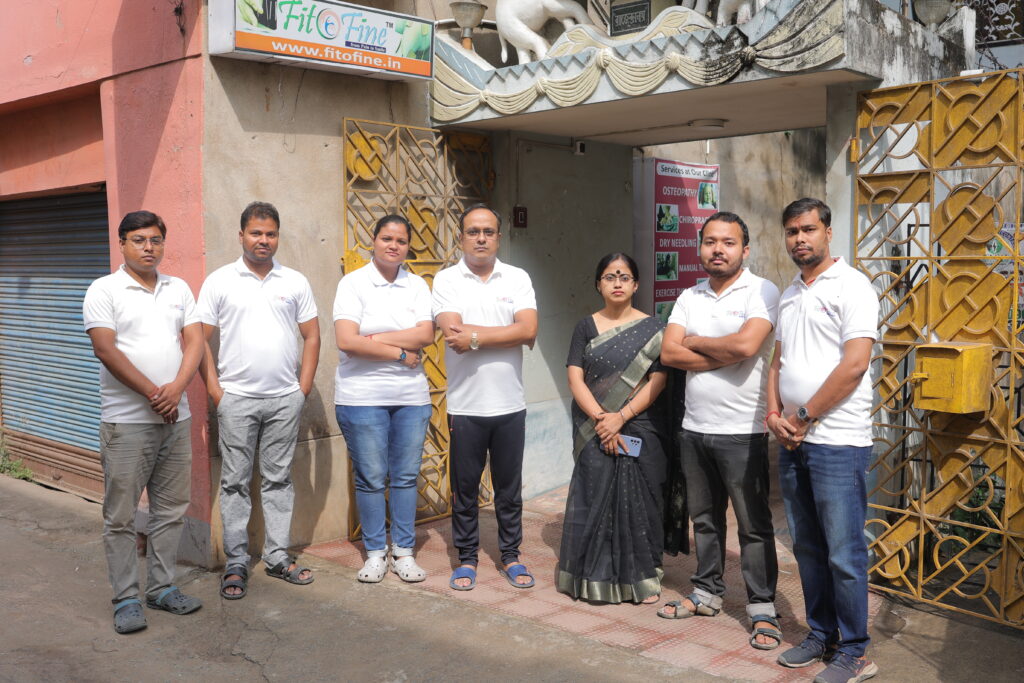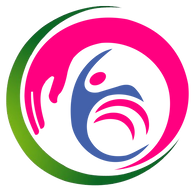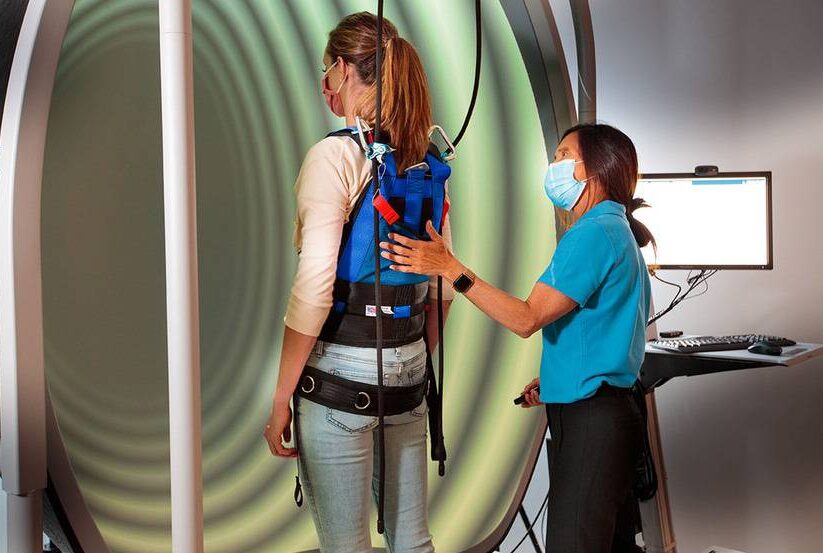Vestibular Physiotherapy for Dizziness and Balance Issues
Regain Balance with Vestibular Physiotherapy
Do you often feel like the world around you is spinning, or do you struggle with imbalance while walking? You’re not alone. These symptoms could indicate a vestibular disorder, which affects your inner ear and your sense of balance. Such issues can seriously disrupt daily life, impacting your confidence, mobility, and even mental well-being.
At FitoFine Physiotherapy Clinic, we offer Vestibular Rehabilitation Therapy (VRT), a specialized and evidence-based treatment that helps reduce dizziness, improve balance, and empower you to move with confidence again.

What Is Vestibular Physiotherapy?

Vestibular physiotherapy, or VRT, is a targeted form of therapy designed to treat disorders of the vestibular system, which is part of the inner ear responsible for balance and spatial orientation. When this system is impaired, the brain struggles to interpret balance signals, leading to symptoms like dizziness, vertigo, and visual instability.
VRT is an exercise-based treatment designed to promote vestibular adaptation and substitution, helping patients compensate for vestibular dysfunction.
Goals:
- Enhance gaze stability
- Enhance postural stability
- Reduce vertigo
- Improve activities of daily living
Mechanisms of Recovery:
- Vestibular adaptation: Adjusting the vestibulo-ocular reflex (VOR) or vestibulospinal reflex to restore function.
- Substitution: Using other eye-movement systems, vision, somatosensory cues, or alternative postural strategies.
- Habituation: Reducing symptoms through repeated exposure to provocative movements.
Key Exercises:
- Head-eye movements in different postures
- Balancing with a reduced base of support
- Performing upper-extremity tasks while maintaining balance
- Repeating movements that provoke vertigo
- Gradual exposure to various sensory and motor environments
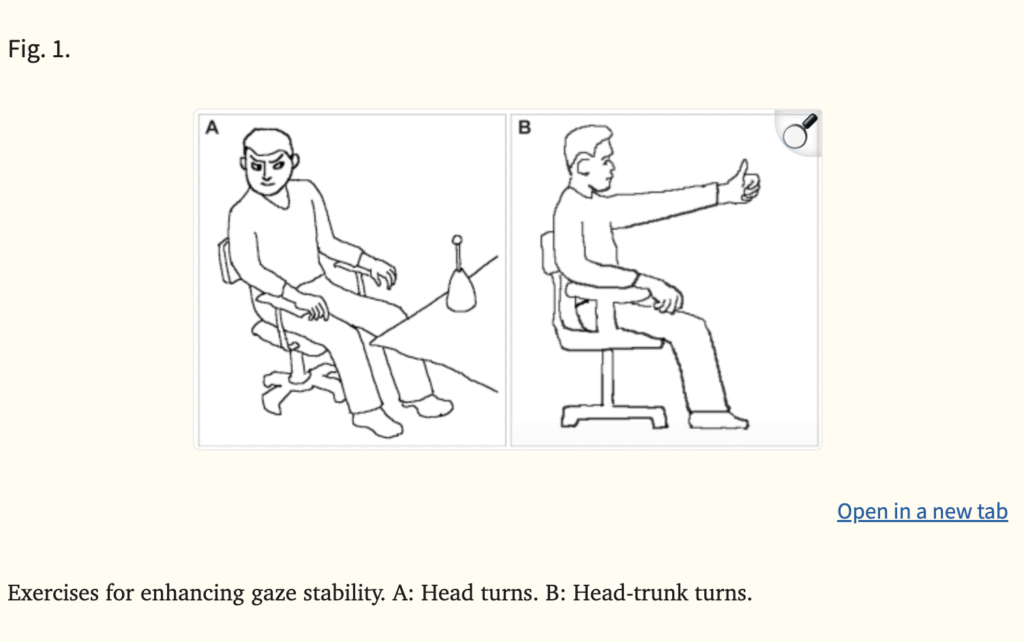
Indications for VRT:
- Stable vestibular lesions
- Central or mixed lesions (with slower recovery)
- Post head injury (as part of multidisciplinary care)
- Psychogenic vertigo (as adjunct therapy)
- Older adults with dizziness to reduce fall risk
- Vertigo of uncertain etiology
- Post-BPPV residual dizziness
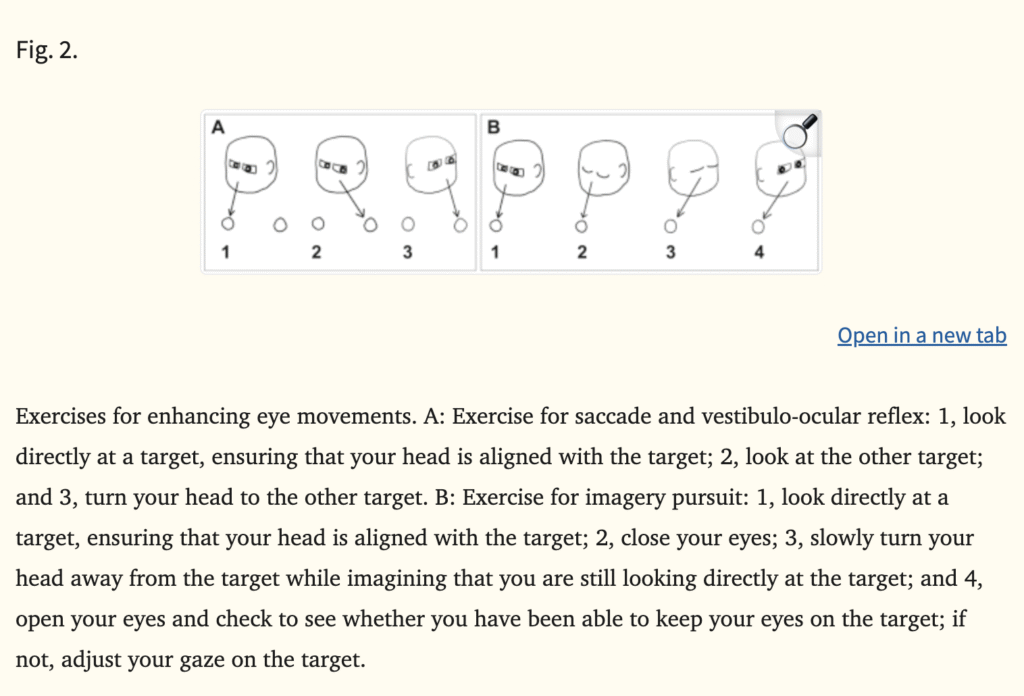
Contraindications:
- Unstable vestibular lesions
- Ménière’s disease with spontaneous episodes
- Perilymphatic fistula or progressive labyrinthine pathology
Recovery Principles:
- Gaze stability: Train VOR through retinal slip, head movements, optokinetic stimuli, and eye-movement substitution strategies (saccades, smooth pursuit, cervico-ocular reflex).
- Postural stability: Use visual and somatosensory cues, improve remaining vestibular function, and retrain normal postural strategies (ankle, hip, step).
- Vertigo reduction: Use habituation exercises targeting provocative movements.
- Daily activities: Integrate exercises into functional tasks and safe exposure to varied environments.
Factors Affecting Recovery:
- Medications may prolong therapy but do not affect final outcomes
- Visual and somatosensory deprivation delays recovery
- Early or late commencement does not affect final outcomes
- Daily exercise is essential, even in short sessions
- Age and lesion site may influence recovery time but not final compensation
- Psychogenic factors (anxiety, depression) can hinder recovery
Exercise Guidelines:
- Gaze stability exercises: 4–5 times/day, 20–40 minutes
- Balance and gait exercises: 20 minutes/day
- Repetitions: start with 5 per exercise, progress to 10
- Modify exercises for difficulty, sensory conditions, and task complexity
- Follow-up: 1–2 weeks, transitioning from customized exercises to maintenance program
- Maintain high physical activity to preserve compensation
Safety and Assistive Devices:
- Use light touch or canes for orientation
- Avoid over-reliance on aids to prevent dependency
- Elderly patients should stop walking while talking to reduce fall risk

Conditions Treated with Vestibular Therapy
Vestibular physiotherapy can benefit patients suffering from:
- Benign Paroxysmal Positional Vertigo (BPPV)
- Vestibular neuritis and labyrinthitis
- Meniere’s disease
- Post-concussion syndrome
- Persistent Postural-Perceptual Dizziness (PPPD)
- Cervicogenic dizziness
- Motion sensitivity
- Balance issues in older adults or post-stroke patients
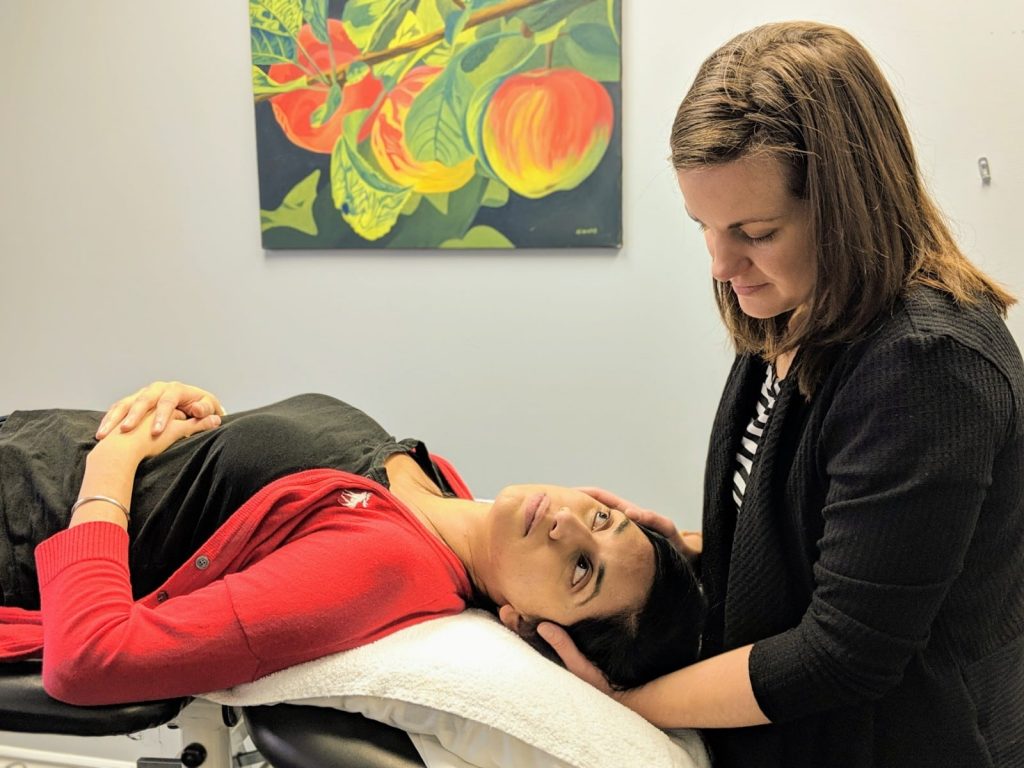
Symptoms That Vestibular Physiotherapy Can Help With
If you’re experiencing any of the following, vestibular therapy may be right for you:
- Spinning sensation (vertigo)
- Light-headedness or faintness
- Loss of balance while walking or turning
- Motion sickness
- Visual disturbances (blurred or bouncing vision)
- Brain fog or difficulty concentrating
- Nausea or vomiting
- Anxiety triggered by movement
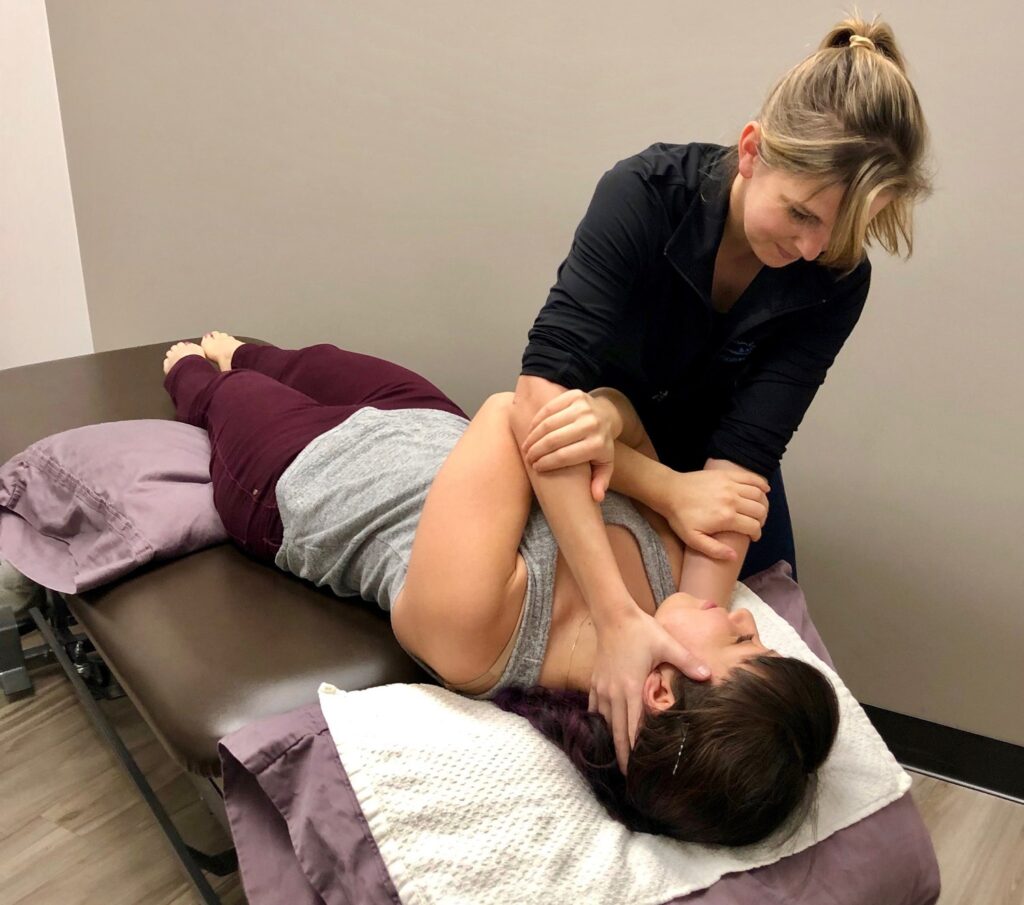
How Does Vestibular Rehabilitation Therapy Work?
Vestibular therapy at FitoFine is completely non-invasive and personalized. It involves systematic exercises to retrain the brain and adapt to changes in balance signals. Here’s how we approach it:
Step-by-Step Rehabilitation Process
1. Initial Evaluation
Our first step includes a thorough assessment:
- Symptom history
- Balance and gait analysis
- Eye movement tracking
- Head and neck mobility
This helps us pinpoint the root cause and customize your recovery plan.
2. Canalith Repositioning Maneuvers (For BPPV)
If your dizziness stems from BPPV, we perform precise maneuvers such as:
- Epley Maneuver
- Semont Maneuver
- Brandt-Daroff Exercises
These help move dislodged crystals in your inner ear to their correct position.
3. Habituation Exercises
Repetitive movement exposure helps your brain adapt and reduce dizziness.
Examples include:
- Rolling in bed
- Repeated head turns while sitting
4. Gaze Stabilization
These exercises improve visual focus while your head moves.
Examples:
- Fixing your eyes on a target while moving your head side to side
- Reading with head motion
5. Balance and Gait Training
We use progressive tasks to help you regain control and prevent falls:
- Standing on one foot
- Heel-to-toe (tandem) walking
- Navigating uneven surfaces or obstacle courses
6. Neck and Postural Correction
Many balance issues stem from cervical dysfunction or poor posture. We provide:
- Gentle neck mobilization
- Stretching and strengthening
- Ergonomic posture corrections
Home Program for Long-Term Relief
Healing doesn’t end at the clinic. We provide each patient with a personalized home exercise program that may include:
- Gaze stabilization drills
- Balance training
- Neck and posture stretches
- Canalith repositioning (if required)
We review your progress regularly and modify your routine to ensure lasting results.

Vestibular Physiotherapy for Seniors
As we age, the vestibular system weakens, increasing the risk of falls. Our therapy helps older adults by:
- Improving balance and reaction time
- Strengthening core and leg muscles
- Reducing the fear of falling
- Enhancing mobility and confidence
Benefits of Vestibular Physiotherapy
- Significant reduction or complete elimination of dizziness
- Improved coordination and steadiness
- Enhanced mobility and independence
- Reduced fall risk
- Better quality of life and peace of mind
Frequently Asked Questions (FAQs)
Q1: How long does vestibular therapy take to show results?
Most patients begin noticing improvement within 4 to 6 weeks of consistent therapy.
Q2: Is it painful?
No, vestibular physiotherapy is non-invasive and generally painless, though some temporary dizziness may occur during certain exercises.
Q3: Do I need a doctor’s referral?
No referral is needed. You can walk in or book directly with us.
Q4: Can children benefit from vestibular therapy?
Absolutely! VRT is safe and effective for both children and adults.
Q5: Will my dizziness come back after therapy ends?
Most patients experience long-term relief, although those with recurring BPPV may need follow-up sessions.
Why Choose FitoFine for Vestibular Physiotherapy?
At FitoFine Physiotherapy Clinic, you’re in expert hands. Here’s what sets us apart:
- Specialized vestibular physiotherapists
- Individualized treatment plans
- Advanced diagnostic techniques
- Evening sessions for working professionals
- Calm, one-on-one therapeutic environment
Book Your Vestibular Assessment Today!
Don’t let dizziness define your day. Whether it’s vertigo, unsteadiness, or unexplained imbalance, FitoFine Physiotherapy Clinic is here to help you find your footing again, literally.
Timings: Monday to Saturday – 5:00 PM to 10:00 PM | Sunday – Closed
Phone: +91 6295115701
Email: fitofine.in@gmail.com
Website: www.fitofine.com
Take your first step toward stability. FitoFine has your back!
